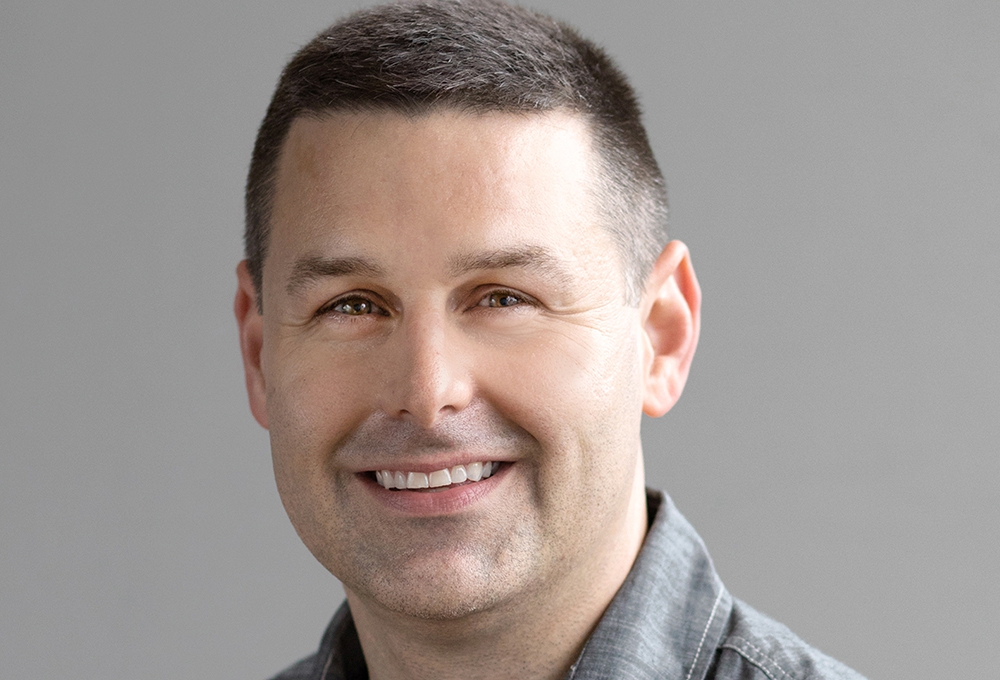40 under 40: Scott Brinkman, Exact Sciences Corp.

By SSN Staff
Updated 10:01 AM CST, Tue February 23, 2021

The COVID-19 pandemic has changed the security profession, according to Scott Brinkman, senior manager, corporate security, Exact Sciences Corp. The added responsibility as a result of the pandemic has seen security professionals play a bigger role in ensuring that COVID-19 requirements are met.
“Security teams have had to adapt to the new normal of having fewer company employees working on-site and more working from home,” he explained. “Processes have had to evolve (ex: employee badging, facility access control) and security is now taking a greater role in ensuring COVID-19 requirements and restrictions from local health authorities and the company are adhered to. Security has also taken the lead in the evaluation, implementation, and monitoring of employee health screening and thermal temperature technologies.”
Career Transition
Brinkman, 39, has been employed by Exact Sciences for three years. He leads the Corporate Security function for the company, which encompasses security operations, physical security design, investigations, threat management, and the department’s 24/7 Global Security Operations Center (GSOC).
After completing his undergraduate degree in Criminal Justice, Brinkman went into law enforcement for 12 years before moving into the security industry.
“About halfway through my law enforcement career, I became interested in transitioning into the security profession,” Brinkman explained. “I completed my MBA with a specialization in project management, joined ASIS International, and started networking with professionals in the security industry who helped me prepare for my transition into the profession.”
Exciting Technology
New security technology that Brinkman is “excited about” is the evolution of integrating audio analytics into Internet Protocol (IP) security devices.
“Since most security incidents involve some type of noise, cameras with state-of-the-art sound detection capabilities can alert monitors in a GSOC who can take appropriate action,” he explained. “While sound detection systems are not new, the technology has improved significantly, while at the same time addressing privacy concerns through listening for pre-defined characteristics instead of spoken words. This technology has the potential to be a game-changer in helping keep our facilities safe.”
Adapting During Uncertain Times
Brinkman stressed the ability for security professionals to adapt during these uncertain times as a key contributor to being successful, citing his own team’s flexibility during the Covid-19 pandemic.
“Security professionals must be willing to be flexible, adapt to the needs of the business, and know when to pivot and course correct,” he explained. “We also need to lead our teams by example and help them understand that during uncertain and sometimes chaotic times, the status quo is simply not an option. Communication with your team and explaining the ‘why’ is important.
“I’m very proud of the way my team has adapted and been willing to step outside of their comfort zone during these uncertain times. From transporting COVID-19 test kits to our laboratory to enforcing stringent new COVID-19 policies on visitors to ensure the health and safety of our workforce (a very manual process), the team has adapted and continues to impress.”
Early Recruiting
Getting more talented, diverse people into the security industry should start early in the career decision-making process, according to Brinkman.
“There are few educational opportunities to expose our young people to the security profession while they are trying to decide what career path to follow,” he noted. “If we want to reverse this trend, we need to make inroads with high school students across the nation though apprentice programs and exposing them to what a potential career in security is like. We also need to find ways to increase the amount of degree programs at the university level.
“Lastly, security departments committed to recruiting quality candidates should directly engage post-secondary schools and establish a relationship with instructors educating today’s young people. Speaking to students in a classroom about the role of security, attending career fairs, and establishing a strong security internship program will build bridges with the next generation of security leaders.”
As we navigate during these challenging times, there are increased opportunities for security professionals to succeed, Brinkman said.
“With unpredictability brings increased opportunity for security to thrive,” he noted. “As we continue to move forward in the COVID-19 pandemic, there is increased opportunity for security teams to show their value to the organization and the employees they serve. For example, refining existing processes to scale with the needs of the business and being willing to take on new processes is critical to showing value and keeping security in the spotlight with decision-makers.”
Comments